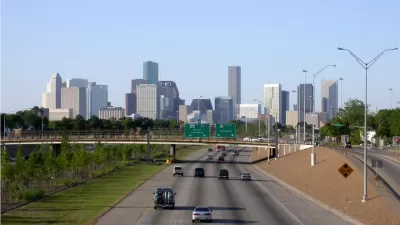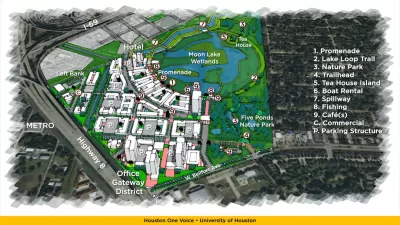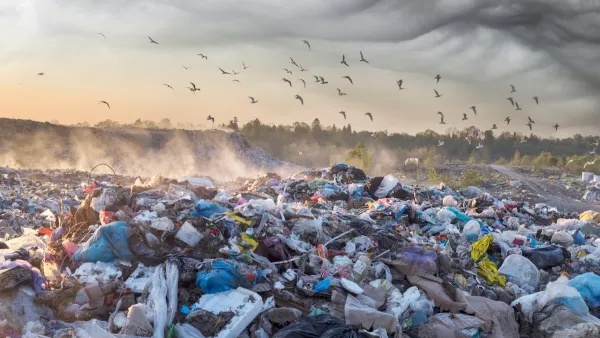After decades of fighting landfills and pollution in their community, residents of Sunnyside are working to build a more sustainable future.

Houston's Sunnyside neighborhood, a historically Black community in the southeast of the city, is no stranger to community organizing and self-reliance. Sunnyside has long borne the brunt of Houston's unchecked sprawl as the site of landfills, concrete plants, and other industrial uses that pollute the environment and harm quality of life for residents. For decades, local activists have fought to shed light on environmental injustices, prevent harmful industrial uses, and restore the community through grassroots projects and mutual aid. In a profile by Leah Binkovitz, Efrem Jernigan, a Sunnyside native and president of the South Union Community Development Corporation, outlines the work happening there and his dreams for the neighborhood he grew up in.
Jernigan and fellow Sunnysider Roy Guillory are just two of the residents actively working to bring sustainable economic development to the area. The two have been purchasing vacant lots with plans to turn them into community gardens, housing for veterans, and other community-oriented projects. At his childhood home, now equipped with rooftop solar panels and an aquaponic garden, Jernigan hosts dozens of children at an outdoor classroom where they can explore STEM through nature and technology. As president of Sunnyside Energy LLC, Jernigan is eager to put a solar farm on the site of a former landfill, transforming the use of the lot from a dumping ground to a healthy, clean source of energy.
With a long history of "sporadic interest and promises" from outside organizations that often go unfulfilled and a dearth of resources from the city of Houston, people in Sunnyside are wary of redevelopment plans. Even as a local, Jernigan knows he has to prove himself in a community wary of his intentions to "create a new narrative" for a historically overburdened area.
FULL STORY: In Houston's Sunnyside, overburdened from decades of discrimination, you learn to provide for yourself

Maui's Vacation Rental Debate Turns Ugly
Verbal attacks, misinformation campaigns and fistfights plague a high-stakes debate to convert thousands of vacation rentals into long-term housing.

Planetizen Federal Action Tracker
A weekly monitor of how Trump’s orders and actions are impacting planners and planning in America.

In Urban Planning, AI Prompting Could be the New Design Thinking
Creativity has long been key to great urban design. What if we see AI as our new creative partner?

How Trump's HUD Budget Proposal Would Harm Homelessness Response
Experts say the change to the HUD budget would make it more difficult to identify people who are homeless and connect them with services, and to prevent homelessness.

The Vast Potential of the Right-of-Way
One writer argues that the space between two building faces is the most important element of the built environment.

Florida Seniors Face Rising Homelessness Risk
High housing costs are pushing more seniors, many of them on a fixed income, into homelessness.
Urban Design for Planners 1: Software Tools
This six-course series explores essential urban design concepts using open source software and equips planners with the tools they need to participate fully in the urban design process.
Planning for Universal Design
Learn the tools for implementing Universal Design in planning regulations.
Gallatin County Department of Planning & Community Development
Heyer Gruel & Associates PA
JM Goldson LLC
City of Camden Redevelopment Agency
City of Astoria
Transportation Research & Education Center (TREC) at Portland State University
Jefferson Parish Government
Camden Redevelopment Agency
City of Claremont





























